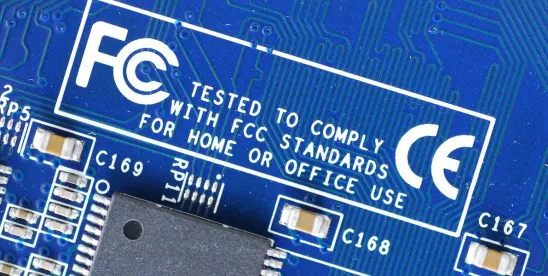The Federal Communications Commission (“FCC” or “Commission”) continues its regulatory focus on Artificial Intelligence (“AI”) in the communications world, with the issuance of new proposed regulations designed to protect consumers from harmful AI-generated communications, targeting robocalls, automated texting, and political advertising.
The FCC has formally moved forward with a combined Notice of Proposed Rulemaking and Notice of Inquiry (“NPRM/NOI”) “to protect consumers from the abuse of AI in robocalls alongside actions that clear the path for positive uses of AI, including its use to improve access to the telephone network for people with disabilities.”
The NPRM/NOI, released on August 8, 2024, seeks public comment on many of the major provisions that Squire Patton Boggs previously reported on in the draft proposal, albeit with some changes. These include, for example:
- The definition of “AI-generated call”: Although the FCC also now asks whether such a definition is necessary given that the “TCPA expressly covers ‘artificial or prerecorded voice’” and the FCC has already ruled that “voice cloning and similar technologies” qualify for TCPA coverage. Apparently, now the FCC is concerned with how callers would determine whether disclosure requirements apply without an explicit definition?
- Call disclosures related to AI-generated calls: As reflected in the draft proposal for consent to receive AI-generated calls and text messages, callers using AI-generated voice would be required, at the beginning of each call, to disclose that the call is using “AI-generated technology.” The FCC added more specificity and now requires that disclosure to include “certain information that would enable the called party to identify the person or entity initiating the call” and asks about the prospect of “separate consent” for calls that already require prior express consent. This is similar to various state telemarking and telephone solicitation requirements that require callers to disclose their identity and the name of the seller, and obtain consent to the calls, within the first 10 to 30 seconds (depending on the applicable state).
- Exemption from TCPA requirements for artificial or prerecorded voice calls: Non-telemarketing calls made by individuals with a speech or hearing disability, using any, including AI, technology designed to facilitate the ability of such individuals to communicate using an artificial or prerecorded voice over the telephone would be exempted from otherwise applicable TCPA requirements.
However, the FCC decided to shift to a Notice of Inquiry (i.e., essentially information gathering rather than rule proposing) status for certain issues that were part of the draft NPRM. These include, for example:
- Comments on the development and availability of call detection, alerting, and voice call blocking technologies relating to potential fraudulent or AI-generated voice calls and whether the FCC should “act to further the development of these technologies.”
- Privacy implications of call detection, alerting, and blocking technologies and potential “requirements to protect the privacy of calls and called parties.”
- Implications of the National Institute of Standards and Technology’s AI Risk Management Framework (NIST’s AI RMF). NIST’s AI RMF is a voluntary set of guidelines and best practices designed to help organizations manage the risks associated with AI systems. The guidelines are not unique to TCPA-covered entities and are a valuable tool for organizations to proactively manage risks and build trust in AI systems.
The move to an NOI was reportedly at the suggestion of two commenters and the Commissioners agreed. Commissioner Carr, in his statement, did urge that the Commission “should proceed in a careful way in order to find the middle bowl of porridge,” cautioning against a “risk of overdoing it early on.” Comment dates for the NPRM/NOI are not yet set.
The NPRM/NOI, adopted at the FCC’s August 7 Open Meeting, was a bipartisan affair, with all Commissioners joining in approval. This is in stark contrast to the earlier FCC rulemaking foray into potential regulation of use of AI-generated content in political ads.
In May, we reported on the FCC Chairwoman’s proposal on AI-generated content and political advertisements. On July 25, 2024, the Commission approved a separate Notice of Proposed Rulemaking on a 3-2 vote, in which the FCC sought comment on the proposal. As previously laid out by the Chairwoman, the focus of the proposed rules is on informing consumers when AI-generated content is being used in political advertisements when delivered by radio and television broadcasters. Commissioners Carr and Simington vigorously dissented. The Federal Election Commission is also addressing similar issues.
Comments for the political advertising proposal are due on or before September 4, 2024; reply comments are due on or before September 19, 2024.





 />i
/>i

